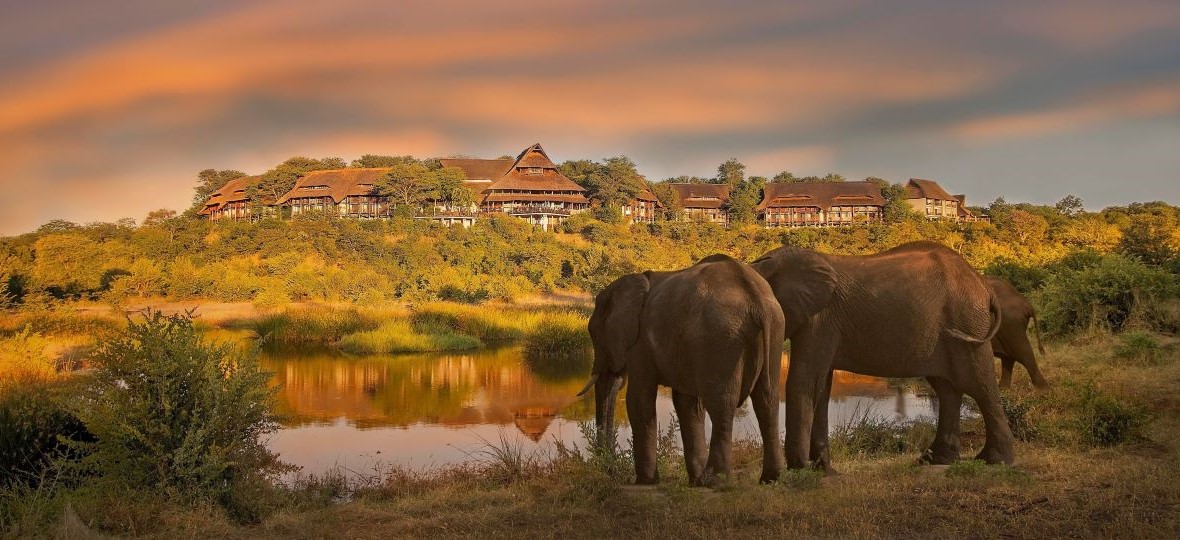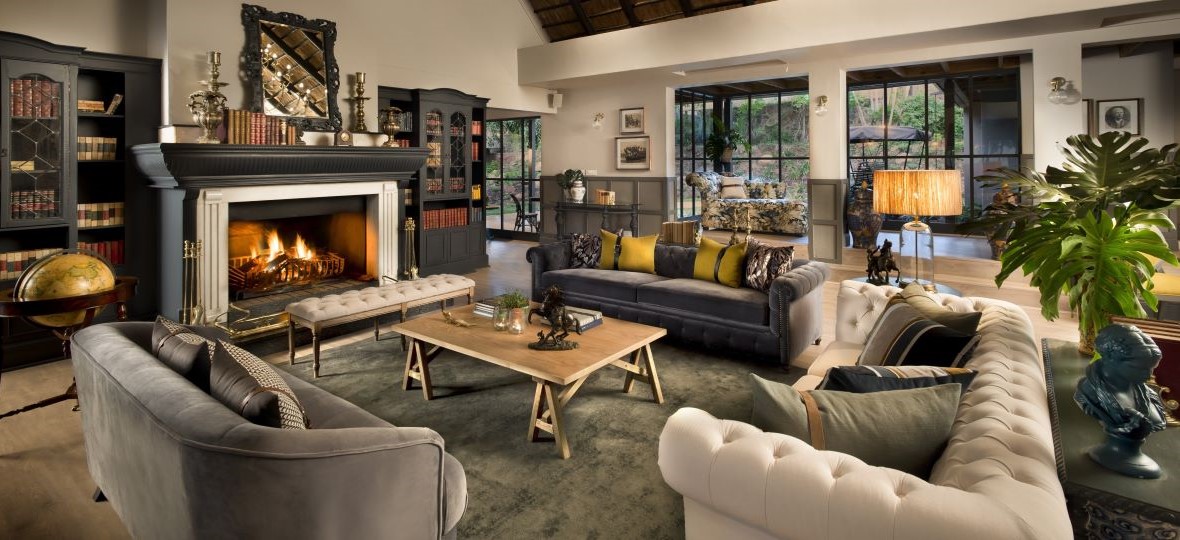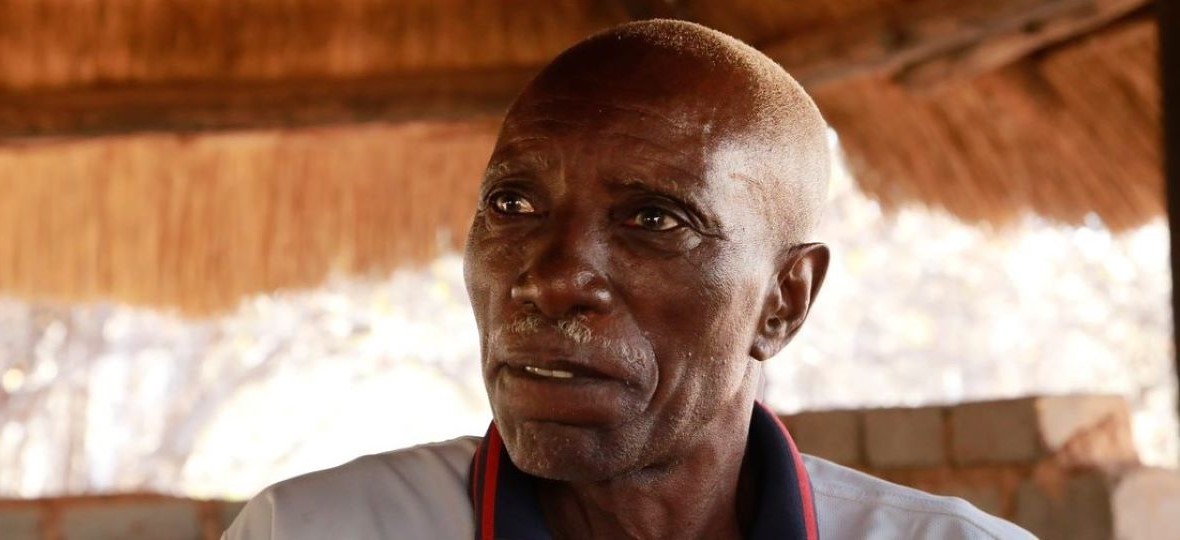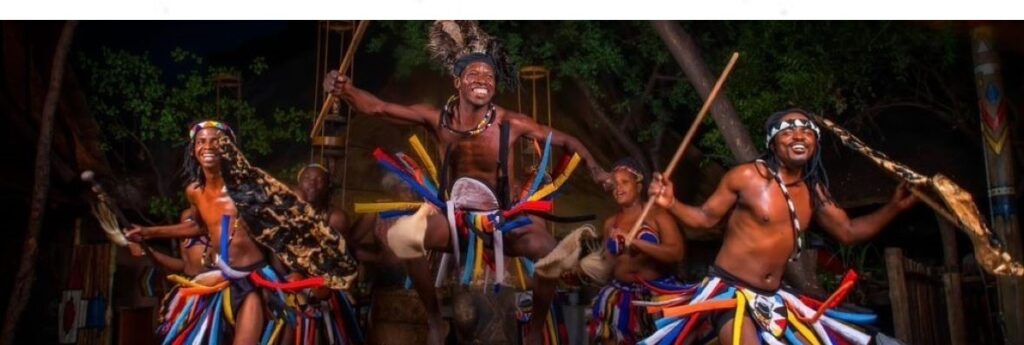When in Africa, you’ll often hear passing reference to Zimbabwe’s outstanding hospitality, and there’s nowhere better to appreciate it than at the iconic World Heritage Site of Victoria Falls. Everyone smiles warmly and greets you like an old friend – they’re all genuinely delightful. And how could they not be, living at a World Heritage site?
Here are two eminent addresses in the destination to lay your (safari) hat down and take in the magnificent experience:
VICTORIA FALLS SAFARI LODGE

Driving through the gates of the lodge, an Ndebele tribesman, in traditional tribal gear, bids you a good day and shakes his spear at a sign announcing our arrival at the premium address of Victoria Falls Safari Lodge. The road, shaded by tall Mopani trees, delivers you to a grand thatched lodge.
Inside the 72-roomed sunset-facing lodge, with its cathedral ceilings, it’s breathtaking and voluminous. Built of thatch and timber, the lodge rises several levels, giving the impression of a vast open-plan tree house. From the terracotta-tiled lobby on the ground floor there are various levels taking you to viewing decks, the Buffalo Bar and MaKuwa-Kuwa restaurant. It’s open-sided and airy, with uninterrupted views across the frequently visited waterhole.
The en-suite rooms are comfy with dark wood furniture and tall beam-and-thatch ceiling, giving a sense of space. The beds are draped with mosquito nets, and the mostly neutral décor is livened up with bold paintings of colourful birds. The waterhole-facing rooms each room have a balcony with a table and chairs. But you’re warned to keep the sliding doors locked – monkeys and baboons like snooping.
There’s a two-tiered swimming pool that lies beyond the Buffalo Bar, surrounded by sunbeds, making it easy to while away the hours watching the wildlife. You’ll look down on herds of elephant, including calves, drinking at the waterhole. Zambezi beer in hand, you’ll watch the ones dart around and play. Here there’s no 4×4 safari stresses, as the game comes to you – five-star style.
TIPS:
- For an authentic Victoria Falls food experience, reserve a table at The Boma, a restaurant on the estate. It’s an unforgettable fusion of mouth-watering local cuisine, legendary dance performances and interactive drumming. It bombards the senses with the tastes, sights, and sounds of Africa.
- At lunchtime, just below and beyond the terraces, join the Vulture Culture Experience, and take in the spectacular sight of hundreds of vultures swooping in and feeding on leftover meat scraps and bones from the on-site restaurants, which provides a safe food source without creating dependency, and learn about their conservation.
www.victoria-falls-safari-lodge.com
STANLEY & LIVINGSTONE BOUTIQUE HOTEL

The world’s most indulgent hotels all have one quality that makes them stand out from one another. Sometimes it’s faultlessly attentive staff, or sublime comfort, or the right whiff – the Stanley & Livingstone has it all.
It’s Victorian in spirit and décor, with the interiors of a gentrified colonial home. There are 16 suites which comprise of low hanging thatched roofed rondavels arranged in a half-moon around the show garden. They’re bright and light with a canopied king-size beds and en-suite bathrooms. Each has a lounge and private terrace – for the best view of the waterhole ask for rooms eight to 12. One of the suites has wide doorways and plenty of space, making it easy for wheelchair access.
Just a stone’s throw from my stoep there’s a waterhole surrounded by towering Sweetgum trees. A troop of baboons were taunting a herd of zebra standing underneath. A dozen or so impala drifted into view, and to one side stood a solitary giraffe. You don’t really need to move from here as the wildlife comes to you.
Other than uber luxury there’s a kidney-shaped pool in the garden, an inventive array of in-room spa treatments using organic Africology products, and twice-a-day game drives around the 4,000-hectare reserve – home to the Big Five.
Besides the incessant birdsong, the Stanley & Livingstone is whisper quiet, because, unlike other lodges, it’s a little further away from the Victoria Falls which is a massive plus as you don’t have the constant whirring noises of helicopter tours overhead. But it’s still close enough for a quick visit as it’s a short 20-minute drive to the Falls.
TIPS
- The reserve is designated as an Intensive Protection Zone for the critically endangered black rhino, and implement a monitoring and breeding program, alongside an Anti-Poaching Unit and Ranger Training Facility. Take a late afternoon game drive into the reserve in search of these magnificent beasts and hear their plight from your ranger.
- more.co.za/stanleyandlivingstone
HAIL TO THE CHIEF, AFRICA’S FAMED MEDICINE MAN

Melusi Mpisi NdlovuWherever you chose to stay in Victoria Falls, be sure to have your lodge arrange a visit to Ko Mpisi Village to meet Melusi Mpisi Ndlovu, a proud Ndebele tribesman and one of the world’s most distinguished traditional healers.
“The Chief,” as Ndlovu is known, is surrounded by wooden bowls filled with an assortment of herbs, twisted plant roots, and strips of tree bark.
For poor Zimbabweans, traditional medicines are their first and last defence against diseases that wreak havoc on their lives. Even though Western medicine is recognized in Africa, it has not replaced, but rather supplemented, the ethnic health approach. Thus, practitioners like Ndlovu remain central to the lives of many.
Ndlovu is a charismatic and distinguished medicine man known throughout Africa as a traditional healer, and internationally famed in the alternative medicine field. His wisdom has been sought twice by the late Queen of England, and the British House of Lords. He regularly consults with major British and American pharmaceutical companies on cancer cures, but also opposes their attempts to patent traditional African herbal medicines.
In recent years he saved the life of an 11-year-old who’d received a lethal bite from Africa’s deadly black mamba. The hospital could only save her by amputating her arm, but Ndlovu did both. Prestigious universities from around the world now send PhD students to Ndlovu, to learn of his snakebite cures.
He has no formal education, yet he’s sophisticated and sharp witted.
“Traditional herbal medicine,” he says, “is found in naturally occurring plant and animal-based substances, which has minimal to no industrial processing. People consult traditional healers whether they can afford modern medicines or not.
He continues: “It’s a belief system, integral to the lives of most Africans. There are some things Western medicine cannot fathom. You see, doctors who train in Western sciences focus only on the biomedical causes of disease. We traditional healers have a holistic approach. Some divine the cause of an illness by throwing bones and listen to the channelled curative advice of dead ancestors. Whilst others, like me, have in-depth knowledge of plant materials and their various healing powers.”

